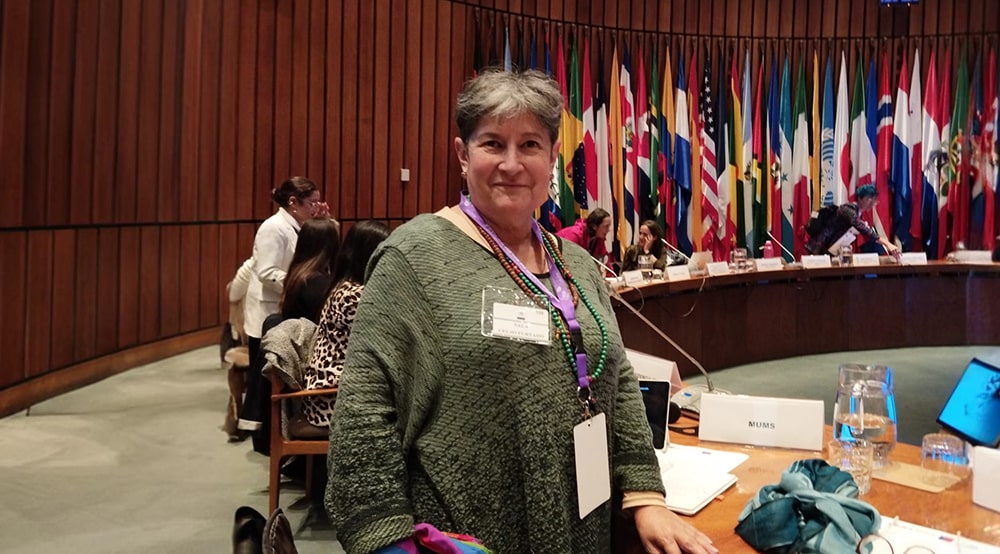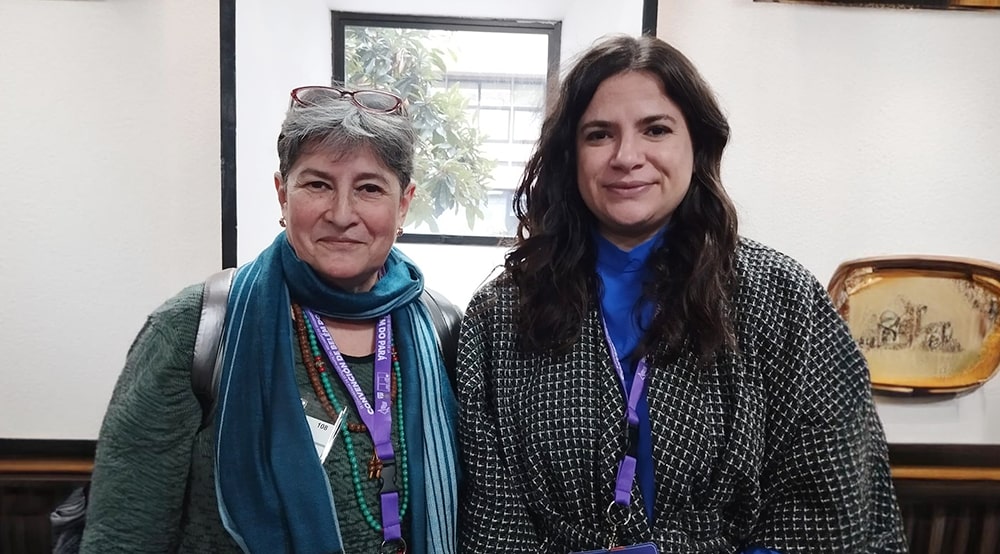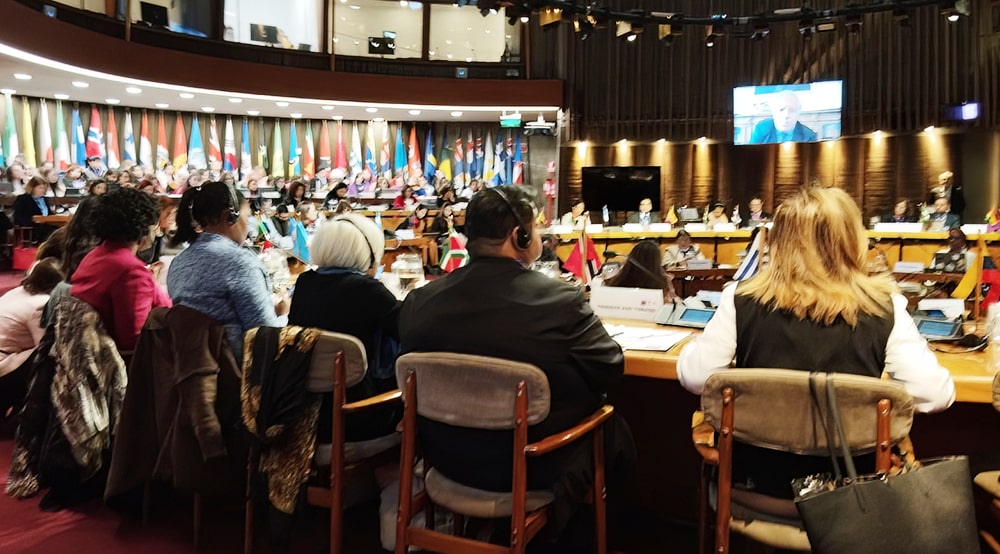*Text adapted from from Tatiana Rojas’ intervention at the Belém do Pará Convention.
I am Tatiana Rojas, a GLBT activist with more than 20 years of experience. As director of MUMS, a movement fighting for gender diversity, and as gender representative of HomeNet International, which brings together more than 1.3 million home-based workers in 30 countries, I want to share my perspective on the violence faced by lesbian, bisexual and trans women at work.
As I get older, I realise that intersectionality is fundamental to understanding the struggles we face. Although not all trans women reach the age of 66, their situation is even more delicate.
Violence is not always visible or explicit. In many cases, the denial of the right to decent work, including social protection, is a form of invisible violence. According to studies by MUMS and other GLBT organisations, more than 50% of LGBTI people have experienced discrimination at work, leading them to prefer informal jobs or to be “entrepreneurs”. This is especially true for lesbian and trans women, who often work in informal sectors or in sex work.
The lack of decent work and social protection puts us in a position of fragility and disempowers us. It is important to mention that many international conventions, such as ILO Convention 190, establish the need for violence-free work environments, but are not adequately implemented.
Furthermore, lesbian and trans women are invisible in statistics and public policy. The National Institute of Statistics (INE) and other state agencies do not consider our needs and experiences, which makes it difficult to create effective public policies to address our problems.
It is important to remember that the ratification of Convention 177 on home-based work and other international conventions on decent work is crucial to address this invisible violence. It is also necessary to train all public officials to implement these standards and policies.
Finally, it is critical to address health and access to health for all lesbian, trans and reproductive women. Obstetric health and comprehensive sexuality education are key issues to address obstetric violence and exclusion faced by many women.
In short, the struggle for decent work and social protection is fundamental to addressing the invisible violence faced by lesbian, bisexual and trans women. We need to work together to create effective public policies and training for all public officials to address our needs and experiences.
Watch the video of Tatiana Rojas’ intervention here






